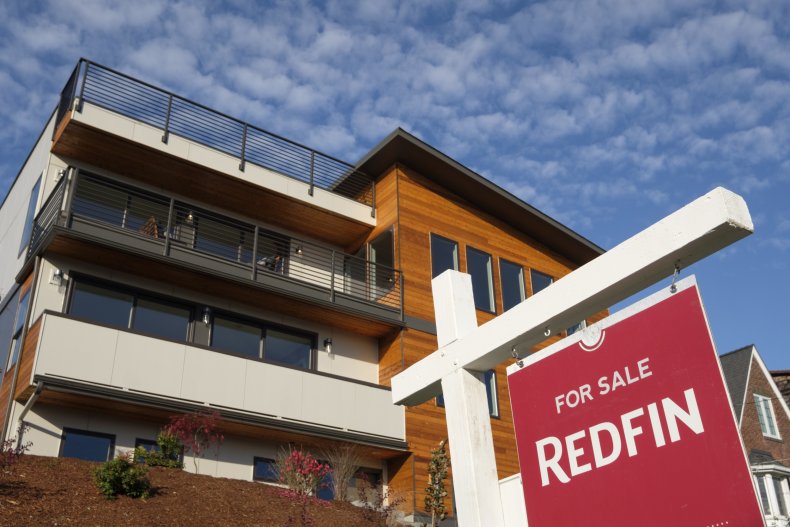America's Bubble Economy: Signs of Overheating? | Opinion
John Maynard Keynes was perhaps the 20th century's most famous economist. He was also a successful investor who made fortunes for himself and his alma mater, Cambridge University's King's College. Among his many wise observations was a cautionary note about trying to time financial markets: doing so was "impracticable and indeed undesirable."
Trying to predict when to enter ("buy low") or exit ("sell high") a given stock or financial market is a fool's errand. Nonetheless, 20/20 hindsight offers some guidance as to when a market might have increased so much as to have reached overheated "bubble" territory.
Non-cash investments for most people these days typically fall into four broad categories: stocks, bonds, commodities and real estate. Stock and bond returns usually move in opposite directions, thereby offering ways to establish a balanced, risk-adjusted investment portfolio. Underlying fundamentals can signal caution, however, when values are out of whack, prompting what investment professionals euphemistically deem a market "correction," a term implying that there must always be some proper valuation.
Signs of bubble-like overvaluations can include an individual stock's long-term expected earnings picture (a price/earnings ratio that, on its face, seems too high), gold, copper, or other commodities experiencing sudden price spikes, or real estate appreciations that appear divorced from current valuations as reflected in market appraisals. A bubble might be like that famous Supreme Court definition of pornography: hard to define in advance, but you know it when you see it.
Looking at two well-known, well-examined market crashes, it is clear, at least in retrospect, that what appeared to be a healthy, buoyant market at the time was anything but.
Take the 1999-2000 dotcom crash and the onset of the 2008-2009 Great Recession. In each instance, there were "aha" moments suggesting something was amiss. One family member spent weekends reviewing his tech-heavy stock portfolio, gleefully explaining how, given current market behavior, his net worth would be doubling roughly every five years. We know how that scenario played out.
Another friend was CEO of a tech company that specialized in facilitating internet transactions. The company's IPO opened at $26 per share in late 1999 and about two months later exceeded $325 per share. I called the CEO with congratulations on the day he became a paper billionaire. He laughed and told me that by the time he could realize any of the gains (as an insider, he was prohibited from cashing in early), the stock's value would have settled back down closer to $26. He was correct. Today, that company's stock price is just above $100 (without any splits).

In late summer 2007, I dropped off my car for overnight servicing and took a taxi home. The driver was an immigrant from Afghanistan who had been in the country about seven years. As we reached my neighborhood, he started asking about the home prices. He told me that one of his friends, another Afghani cab driver, was buying and flipping $500,000 condos in Lorton, Virginia. His friend would hold a property for six months, sell it, and pocket a tidy $100,000 profit.
When I came to the D.C. area in 1979, Lorton was mostly known as the home of the city's prison, a looming monstrosity leased from the federal government surrounded mostly by farmland. My immediate reaction upon hearing about the Lorton easy-money flips was that the music for this little dance was going to end soon. And it did.
There have been recent newspaper stories about the super-hot, national real estate market, driven by an extremely low supply of houses and ultra-cheap interest rates. Recently, I heard about a nearby, suburban Virginia real estate listing: a single family, nothing-special, three-bedroom, one-bathroom home built in the 1940s that the seller priced at $789,000. Within a day or so of the listing, a young couple in their early 30s expecting their first child submitted an offer of $910,000. That's right, an offer $121,000 above the asking price.
This couple was remarkably unwise. Since they clearly wanted this house, their agent could have advised them to offer $20,000 over the listing price with an escalation clause up to, say, $1 million. They got the house, of course, and possibly blew $100,000.
The pandemic response has pumped more than $6 trillion into the U.S. economy with more dollars and massive deficit spending on the way. Inflation worries are rising.
This inflated Virginia home sale was another "aha" wakeup moment for me. It should be for you, too.
Charles Kolb served as deputy assistant to the president for domestic policy from 1990 to 1992 in the George H.W. Bush White House. From 1997 to 2012, he was president of the nonpartisan, business-led Committee for Economic Development.
The views expressed in this article are the writer's own.


